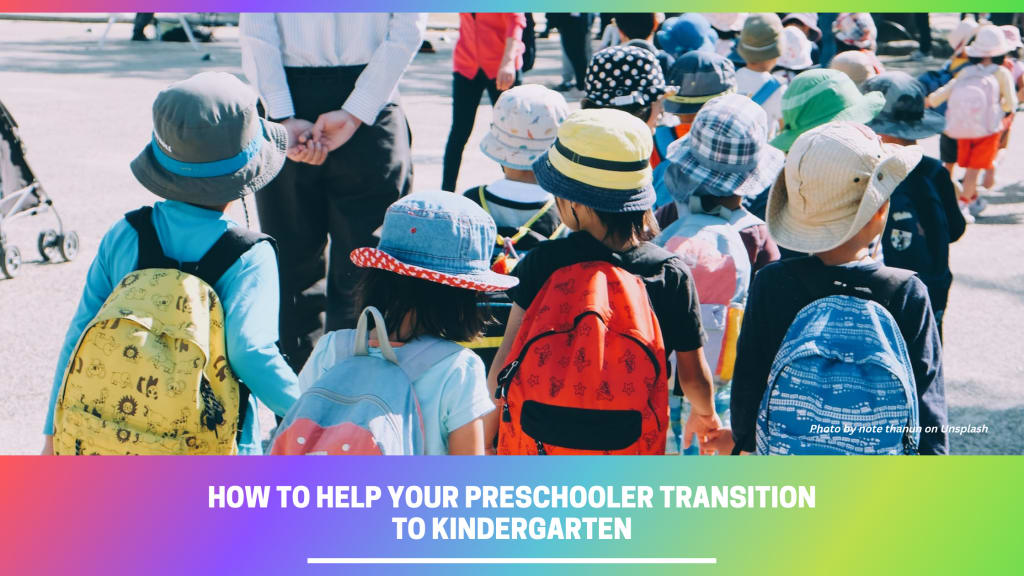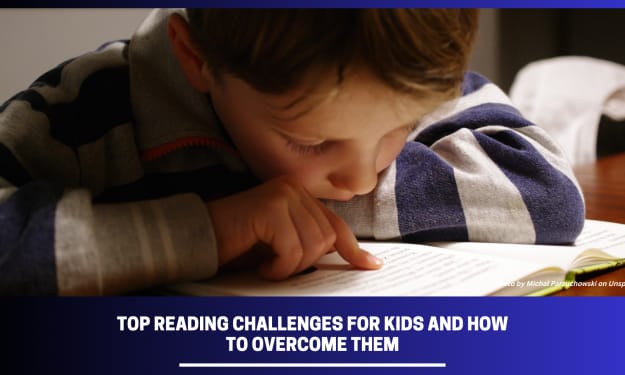How to Help Your Preschooler Transition to Kindergarten
There are several things you can do to help your preschooler's transition to kindergarten go as smoothly as possible.

Starting kindergarten can be both exciting and terrifying for your child, and parents are frequently as anxious as their preschoolers with preschool lesson planner about this major milestone. There are several things you can do to help your preschooler's transition to kindergarten go as smoothly as possible.
Do a Dry Run
A dry run is one of the simplest ways to ease your child into kindergarten. Visit the school ahead of time, even if it is closed, to familiarize your child with the location. If there is a day set aside before the official first day of school to meet teachers and faculty, make sure your child attends. If your child's school does not have a "meet the teacher" day, contact school administrators to see if you can arrange a meeting with your child's teacher and other faculty members before school starts.
Also, start adjusting your daily and nightly routines a week or two before the first day of school to familiarize your child with what will be expected of them during the school year. Adjust your child's bedtimes, mealtimes, and daily routines to help them adjust to their new schedule.
Beat First-Day Jitters
It is natural for both children and parents to be nervous on the first day of school, so developing strategies to combat first-day jitters is critical. Maintain a positive attitude because you will be leaving your child for the day, which is bound to cause some anxiety. Keep your emotions in check when saying goodbye at the bus stop or school, and reassure your child that you will see them at the end of the day. Also, make sure to describe school positively and emphasize that this will be a fantastic experience.
To reduce first-day jitters even more, avoid any behaviors that may cause anxiety or upset your child, such as crying, arguing with teachers or bus drivers, or disagreeing with your child about meals or fashion choices. Encourage your child to eat a nutritious breakfast on the first day of school, but don't be concerned if their appetite isn't as robust as usual.
Get to Know the Teachers
Aside from practicing, you should maintain regular contact with your child's teacher, especially during the first few weeks of school. Teachers will most likely send home a lot of information in your child's backpack at the start of the school year and throughout, including important school events, meetings, and other information. Check your child's backpack on a daily basis and go over the information you receive with them.
Maintain open lines of communication with teachers, and keep their contact information on hand in case of an emergency. If you have any concerns, do not hesitate to schedule a meeting with the principal or a teacher to discuss and resolve them.
Keep Communication Open
Discussing any fears or insecurities your child may have about starting lesson plan template preschool is one of the best ways to ease the transition to kindergarten. Talking to your child gives you a good understanding of how they feel and allows you to help them manage their stress. After each school day, always ask how your child's day went—if they had a difficult day, try to figure out what was wrong.
Many students are vocal about their dissatisfaction with the school, but others may require some prodding to open up. Allow your child to express their frustrations and avoid projecting your own fears onto them. Allow your child to express themselves freely so that you can assist them in developing practical solutions. In the first few weeks of school, your child may ask more questions, so try to answer them as best you can.
Inquire about what they've learned and how they feel the school is assisting them, if they've made any new friends, and if they have any favorite activities at school. Maintaining open lines of communication can help to alleviate the stress of the kindergarten transition.
Making Kindergarten an Exciting Time
Kindergarten is, without a doubt, a significant transition for many children, and for those who did not attend a pre-kindergarten program, it will be their first experience in a structured learning environment.
Transitioning to kindergarten can be especially stressful for children who have had no previous school experiences because they will be expected to develop social skills as well as practical skills such as reading and writing, all while adhering to classroom rules. Always express excitement when discussing what your child can expect in kindergarten, as this will help them mentally prepare for one of the most exciting and educational times of their lives.
About the Creator
Amit Kumar
Full-time thinker & part-time writer...
Enjoyed the story? Support the Creator.
Subscribe for free to receive all their stories in your feed. You could also pledge your support or give them a one-off tip, letting them know you appreciate their work.






Comments
There are no comments for this story
Be the first to respond and start the conversation.